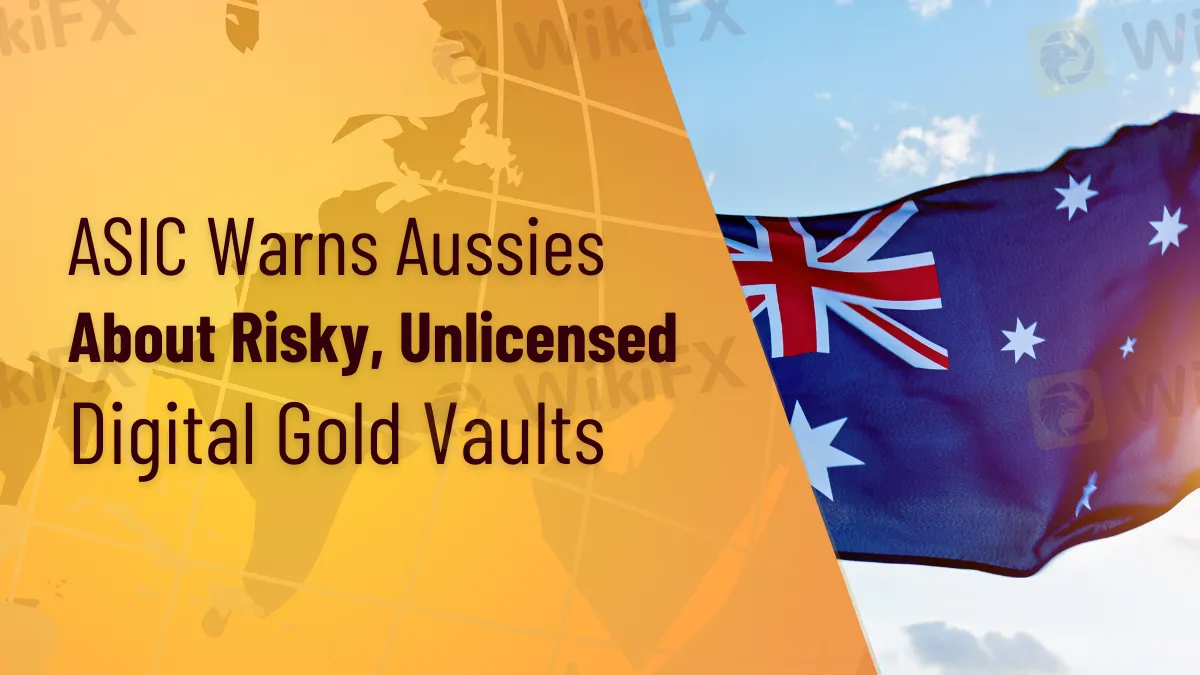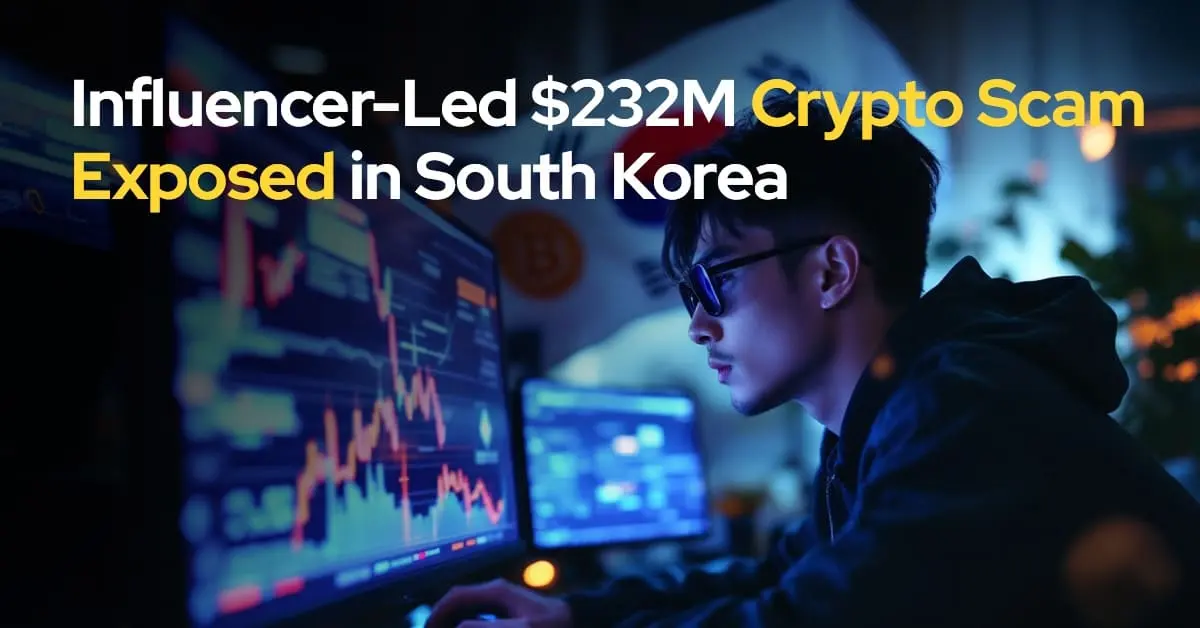简体中文
繁體中文
English
Pусский
日本語
ภาษาไทย
Tiếng Việt
Bahasa Indonesia
Español
हिन्दी
Filippiiniläinen
Français
Deutsch
Português
Türkçe
한국어
العربية
ASIC Warns Aussies About Risky, Unlicensed Digital Gold Vaults
Abstract:ASIC warns Australians about the risks of unlicensed digital gold vaults, highlighting potential scams and the difficulties of verifying and recovering investments.

The Australian Securities and Investments Commission (ASIC) has issued a harsh warning to Australians about the growing hazards linked with unregulated digital gold vaults. These dangerous investment schemes are gaining popularity, tempting customers with promises of passive income and high returns but are laden with risks.
Emerging Risks with Unlicensed Entities
ASIC has discovered a rising trend involving unregistered businesses offering fraudulent investment possibilities in digital gold vaults. These companies often market their offerings to trusted personal networks, such as family and friends, using internet platforms such as Instagram and Facebook. They portray their schemes as profitable, with the prospect of passive income merely by attracting new investors.
In these schemes, customers are urged to acquire the privilege of using a digital gold vault for a specific amount of time. The concept is that additional investors will use this vault to store virtual gold, earning profits for the original investment. However, these refunds may not be as safe or authentic as they look.
Problems with Verification and Recourse
ASIC expressed concern about the difficulties in validating these digital gold vaults. Frequently, the corporations underlying these investments are domiciled abroad, making it difficult for Australian investors to obtain redress in the event of a disagreement. These investment plans' terms and conditions might also be convoluted, making any efforts to address difficulties much more difficult.

Furthermore, these assets may be organized in ways that hide their genuine nature. For example, some digital gold investments include tokens or units that are said to be backed by actual gold bullion housed in professional vaults. Others might be listed on stock markets as exchange-traded products (ETPs). The Corporations Act 2001's regulatory structure implies that such investments may be considered 'financial products' or even managed investment schemes, requiring particular license or registration.
Potential for Fraudulent Schemes
ASIC cautions that some of these digital gold vault schemes may be fraudulent, with returns financed by new investors rather than real revenues. This structure may imply a Ponzi scheme, in which rewards are paid from new investors' contributions rather than legitimate investment gains.
Furthermore, some unlicensed businesses provide additional goods like as debit cards connected to these investments, allowing for worldwide cash withdrawals and transactions. These products may also be categorized as non-cash payment facilities under the Corporations Act 2001, requiring issuers to have an Australian Financial Services (AFS) license.
About ASIC
ASIC is Australia's business, market, and financial services regulator. ASIC is in charge of enforcing and regulating corporate and financial services laws to safeguard consumers, investors, and the integrity of the financial markets.
Get the latest updates on digital gold vaults and other investment warnings on the WikiFX news page.

Disclaimer:
The views in this article only represent the author's personal views, and do not constitute investment advice on this platform. This platform does not guarantee the accuracy, completeness and timeliness of the information in the article, and will not be liable for any loss caused by the use of or reliance on the information in the article.
Read more

PayPal Expands PYUSD Transfers to Ethereum and Solana
PayPal's PYUSD stablecoin can now transfer across Ethereum and Solana, enhancing flexibility for users through a LayerZero cross-chain integration.

Crypto Scammer Pleads Guilty in $73 Million “Pig Butchering” Fraud
The scammer behind a $73 million pig butchering scheme has pleaded guilty to defrauding victims through fake cryptocurrency investments.

Influencer-Led $232M Crypto Scam Exposed in South Korea
South Korean authorities recently dismantled a large-scale cryptocurrency scam, allegedly orchestrated by a popular YouTuber referred to as Mr. A, which misled over 15,000 investors and amassed nearly 325.6 billion Korean won (approximately $232.7 million USD).

Robinhood Reinstates SOL and ADA Amid Expanding Crypto Offerings
Robinhood brings back SOL and ADA for U.S. investors after delisting due to SEC concerns, adding XRP and PEPE in an expanded lineup of 19 cryptocurrencies.
WikiFX Broker
Latest News
ATFX Expands LATAM Presence with New Mexico Office
CySEC Warns against Public Review Websites
Former Alameda Executives Hand Over Assets in FTX Creditor Recovery Effort
Tradeweb and TSE Partnership Enhances Access to Japanese ETFs
JUST Finance and UBX Launch Multi-Currency Stablecoin Exchange
XM Revamps Website with Sleek Design and App Focus
TradingView & Mexico’s Uni. Partnership, to Enhance Financial Education
Something You Need to Know About SogoTrade
Global Shift in Cryptocurrency Taxation: Italy and Denmark Chart New Paths
Webull Introduces 24/5 Overnight Trading to Extend U.S. Market Access
Currency Calculator


